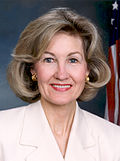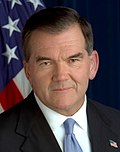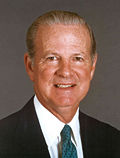| |||||||||||
| |||||||||||
This article lists those who were potential candidates for the Republican nomination for Vice President of the United States in the 1996 election. Former Kansas senator Bob Dole won the 1996 Republican nomination for President of the United States, and chose former Secretary of Housing and Urban Development Jack Kemp as his running mate. Dole chose Kemp as his running mate in order to solidify support among the conservative wing of the Republican Party, despite the mutual personal distaste the two candidates had for each other. [1] [2] The Dole–Kemp ticket ultimately lost to the Clinton–Gore ticket in the general election.































